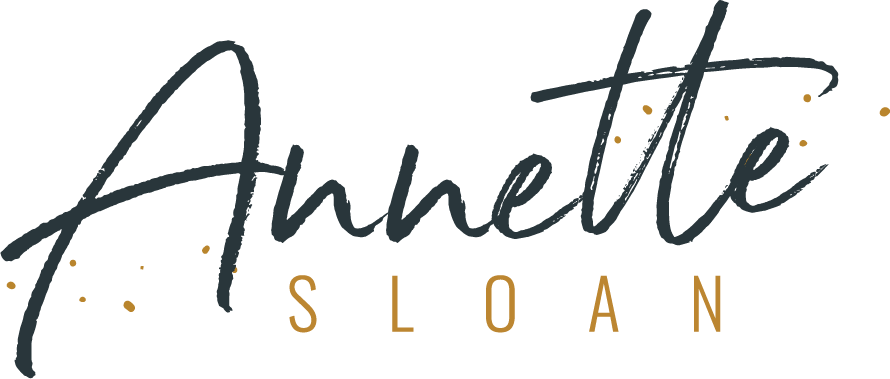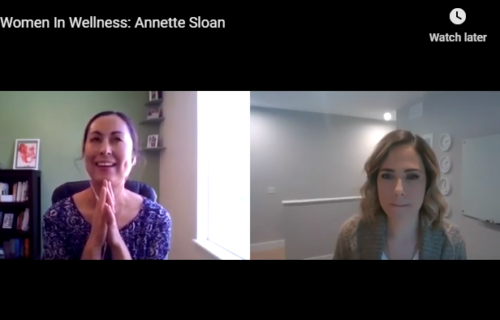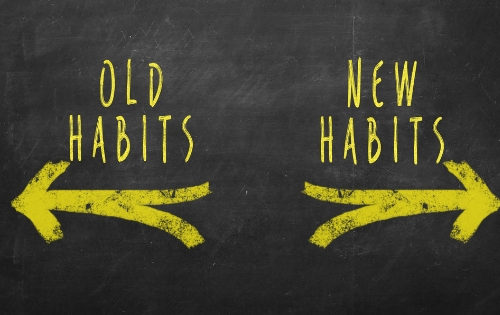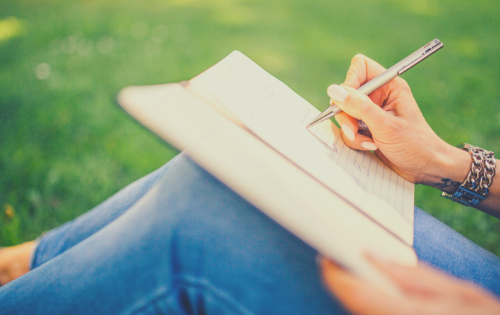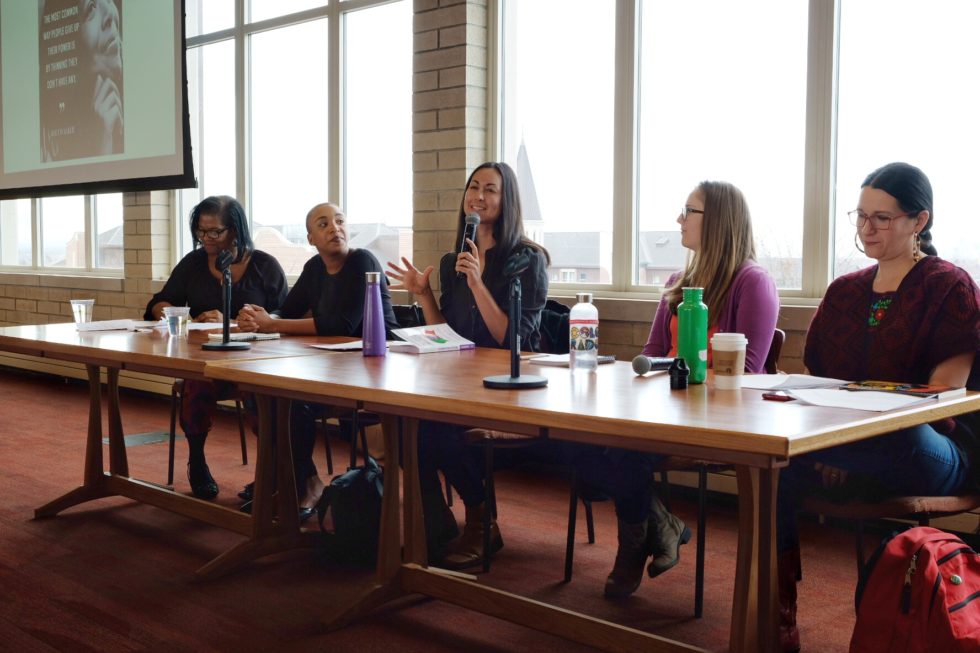
Visionary Women Panel at the University of Denver!
Last week, I had the honor of being a panelist at a University of Denver event called Visionary Women: Champions of Peace and Nonviolence. Below are the questions they asked each of the panelists, along with my answers!
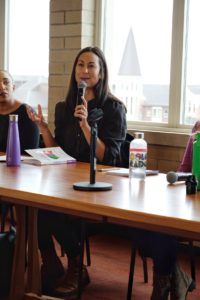
1. What is your vision and who is the vision for?
My vision is of a world that works for all living beings – a world that is socially just, environmentally sustainable, and spiritually fulfilling. Right now, I believe that my personal role in getting us there is to help sensitive souls transcend our not-good-enough culture by unlearning harmful cultural conditioning, by developing a resiliency toolkit that allows us to bravely do our inner work, and by getting deeply rooted in the unshakable knowing that we are worthy, exactly as we are.
Since I was invited here today to specifically speak about food freedom to this audience of women, I’d like to plant a seed about the cultural conditioning in this realm that I believe it’s important to free ourselves from if we hope this make this vision a reality, because for many of us it’s such a normal part of the water we swim in that we don’t even realize it’s there.
We live in a world where women are taught from the get-go that to be worthy, we need to be thin. This is a lie perpetuated by a $66 billion diet industry, which has brilliantly infiltrated the health and medical arenas so that we’re getting this message not only from media, but also from doctors and official organizations like the CDC. As a result of this conditioning, many women spend a good chunk of their energy and life force on either trying to be thin if they’re not, or on avoiding weight gain, because we’ve been taught that fat is the worst thing we can be.
This narrative is simply not true. If you read the book Health at Every Size: The Surprising Truth about your Weight, by Dr. Linda Bacon, they lay out the data that show that healthy bodies come in all sizes, that dieting actually makes us LESS healthy in the long run, and that our fatphobic culture has contributed to a collectively disordered relationship with food. So we’ve been brainwashed on the health/wellness front, and to finish off, I’d like to share a quote from Naomi Wolf’s The Beauty Myth that may get at the underlying reason for this:
“A culture fixated on female thinness is not an obsession about female beauty, but an obsession about female obedience. Dieting is the most potent political sedative in women’s history; a quietly mad population is a tractable one.”
2. How did you come up with it?
As a result of all the healing work I’ve done on myself. When I was a teenager and then as a student here at DU and into my early 20s, I struggled with disordered eating and poor body image, and I spent a lot of time beating myself up as a result. The vision I carry now was slowly developed over time as I healed my relationship with food and my body.
3. What challenges have you faced in executing the vision?
I think the biggest challenge I’ve faced so far is figuring out how to actually articulate it. It’s been slowly refined over time and it will likely continue to evolve as I evolve. In my experience, you can’t force-create a personal vision – it’s more like it’s something that’s given to you over time, each piece unveiled as you’re ready. In a very goal-oriented world where there’s a strong emphasis on clearly knowing what you want, it’s challenging to be in the space of “I’m just not clear yet.” It feels like there must be something you’re not getting or that you’re doing wrong, which sheds light on another aspect of our not-good-enough cultural conditioning. But really what’s happening, at least in my view, is that we’re being shaped into the women who can hold the vision. Being in the space of “I’m just not clear yet” is an opportunity to grow in our trust and faith in ourselves and in the universe.
4. How can other women get involved?
By committing to doing their own inner work to transcend our not-good-enough culture. My advice would be to start with whatever area feels the most painful for you, and let that be the doorway into the work.
5. What have you learned about yourself thus far in your journey?
That who I am is exactly who I’m meant to be. And that my highest calling in this life is to be fiercely committed to my own soul.
6. What's your advice for other women?
- Whenever you find yourself feeling not good enough, ask yourself, “Who profits off of this emotion?”
- Cultivate presence. The greater our ability to be truly present with what is, right now, the more in tune with ourselves we get, the less we identify with our stories and conditioning, and the more fulfilling our life becomes.
